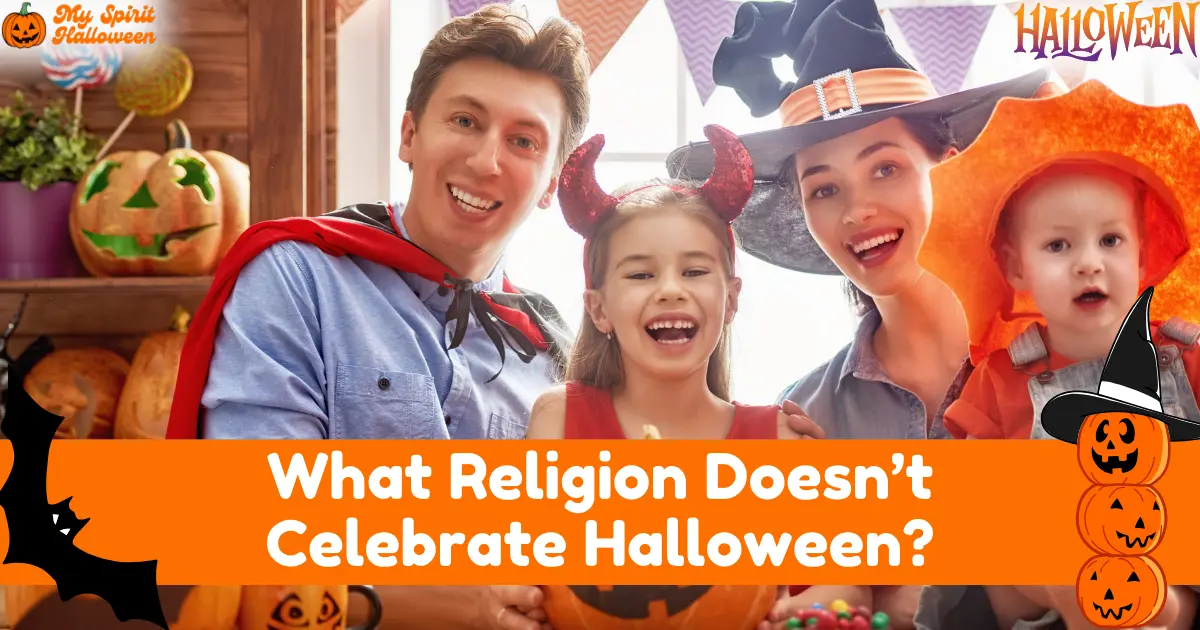
Halloween celebrated on October 31st, is a time of spooky decorations, costumes, and trick-or-treating.
Originating from ancient Celtic traditions and evolving over centuries, Halloween has become a major cultural event in many parts of the world.
However, not all religious communities embrace this festive occasion. Understanding which religions don’t celebrate Halloween and the reasons behind their non-celebration provides insight into the diversity of religious practices and beliefs.
Major Religions and Their Attitudes Towards Halloween
Islam
Sunni Muslims generally do not celebrate Halloween. Islamic teachings emphasize avoiding practices that do not align with Islamic principles and traditions.
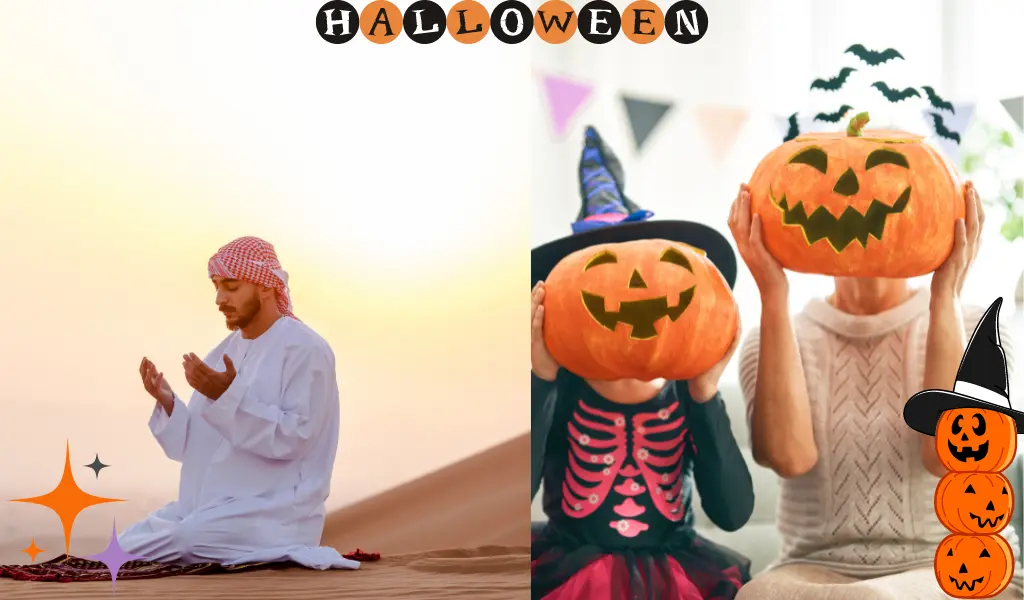
Halloween’s associations with supernatural elements and its non-Islamic origins make it incongruent with Islamic practices.
Instead, Muslims focus on religious holidays such as Eid al-Fitr and Eid al-Adha. By prioritizing Islamic holidays, Sunni Muslims stay true to their faith’s teachings and values.
Christianity
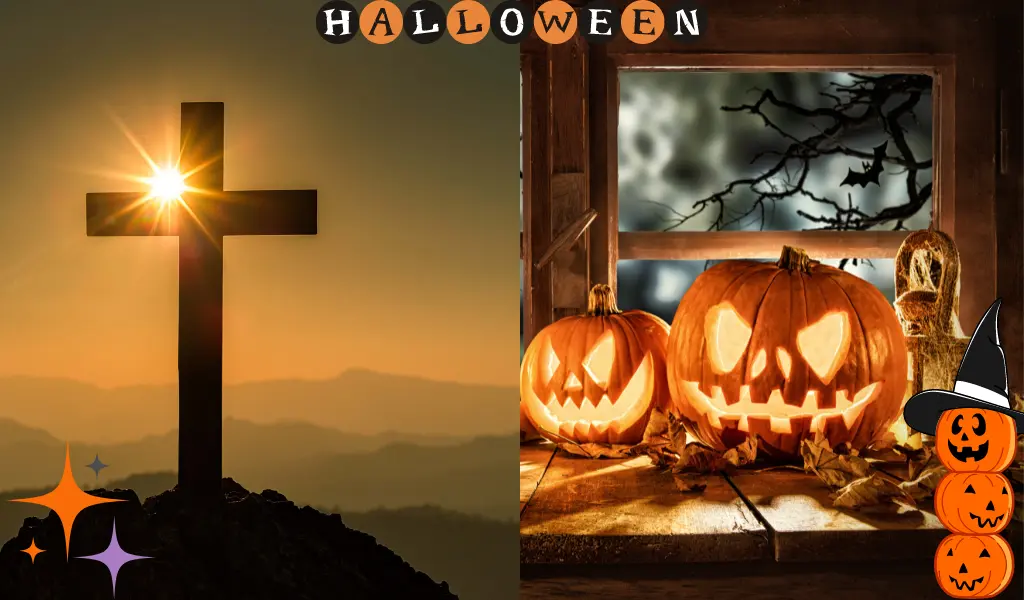
1. Catholicism
Catholic perspectives on Halloween vary. Traditionally, Halloween is not a significant feast day within the Catholic Church. However, some Catholics participate in Halloween festivities, blending it with All Hallows’ Eve, a time to prepare for All Saints’ Day.
The celebration’s focus on saints can make Halloween more acceptable for some Catholics. Still, many conservative Catholics choose not to participate, emphasizing spiritual reflection over secular celebrations.
For Catholics, focusing on All Saints’ Day rather than Halloween helps maintain the sanctity of their religious observances.

2. Protestantism
Views on Halloween within Protestantism are diverse. Many conservative Protestant denominations, such as Baptists and Methodists, discourage Halloween celebrations due to concerns about its pagan roots and the association with supernatural elements.
These groups often promote alternative events like harvest festivals, focusing on community and religious education rather than Halloween.
By organizing harvest festivals, these denominations offer a faith-based alternative that reinforces community values and religious teachings.
3. Orthodox Christianity
In Orthodox Christianity, Halloween is generally not celebrated. The Orthodox Church places greater emphasis on liturgical and feast days that align with its theological teachings.
Halloween’s origins and themes do not align with Orthodox practices, leading many Orthodox Christians to avoid the holiday in favor of more traditional religious observances.
Orthodox Christians prefer to celebrate their established liturgical calendar, which reflects their theological principles and spiritual focus.
Judaism
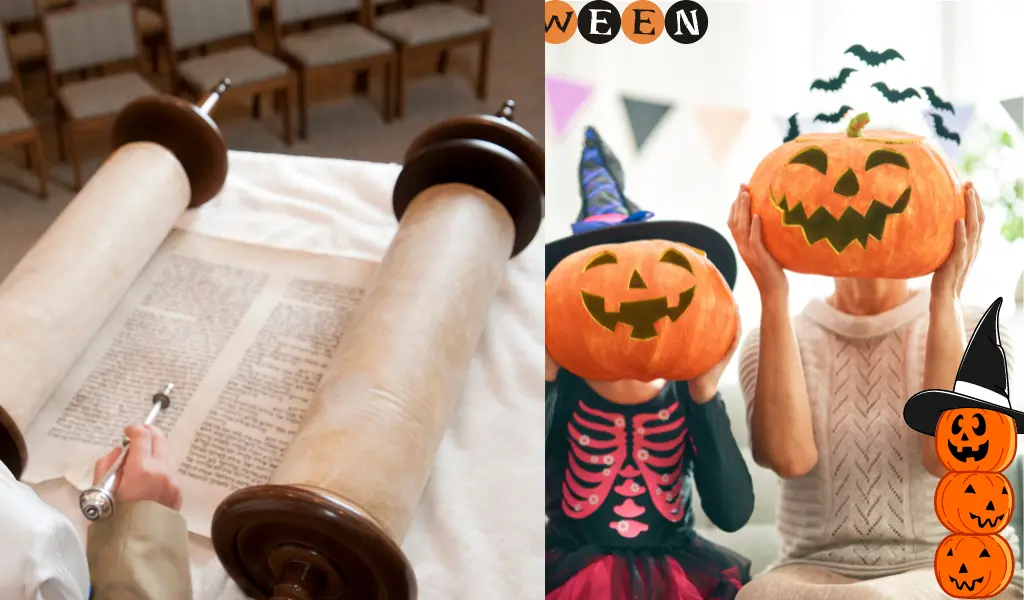
1. Orthodox Judaism
Orthodox Jews typically do not celebrate Halloween. The holiday’s origins and customs are seen as incompatible with Jewish traditions and values.
Orthodox Judaism places a strong emphasis on maintaining distinct religious and cultural practices, and Halloween is often viewed as a non-Jewish celebration with secular and pagan roots.
Maintaining a clear distinction between Jewish and secular traditions helps Orthodox Jews preserve the integrity of their cultural and religious practices.
2. Conservative and Reform Judaism
In Conservative and Reform Judaism, attitudes towards Halloween can vary. While some Conservative Jews might choose not to participate due to the holiday’s non-Jewish origins, others may engage in Halloween festivities in a more secular context.
Reform Jews might be more open to celebrating Halloween, though this is not universally practiced within the movement.
The flexibility in observance reflects the diverse approaches within Judaism toward integrating or avoiding secular celebrations.
Buddhism

1. Theravada Buddhism
In Theravada Buddhism, Halloween is not traditionally celebrated. The focus in Theravada Buddhism is on meditation, moral conduct, and the pursuit of enlightenment rather than secular holidays.
Halloween’s themes do not align with the core practices of Theravada Buddhism, leading practitioners to prioritize Buddhist observances over Halloween.
Theravada Buddhists’ dedication to meditation and moral conduct reflects their commitment to spiritual development over secular celebrations.
2. Mahayana Buddhism
Similarly, Mahayana Buddhists generally do not celebrate Halloween. Mahayana Buddhism emphasizes compassion, wisdom, and the pursuit of enlightenment.
Halloween’s secular and sometimes macabre themes do not resonate with Mahayana Buddhist teachings, and practitioners are more likely to engage in Buddhist rituals and festivals.
Mahayana Buddhists’ focus on compassion and enlightenment reinforces their preference for religious observances that align with their spiritual goals.
Hinduism
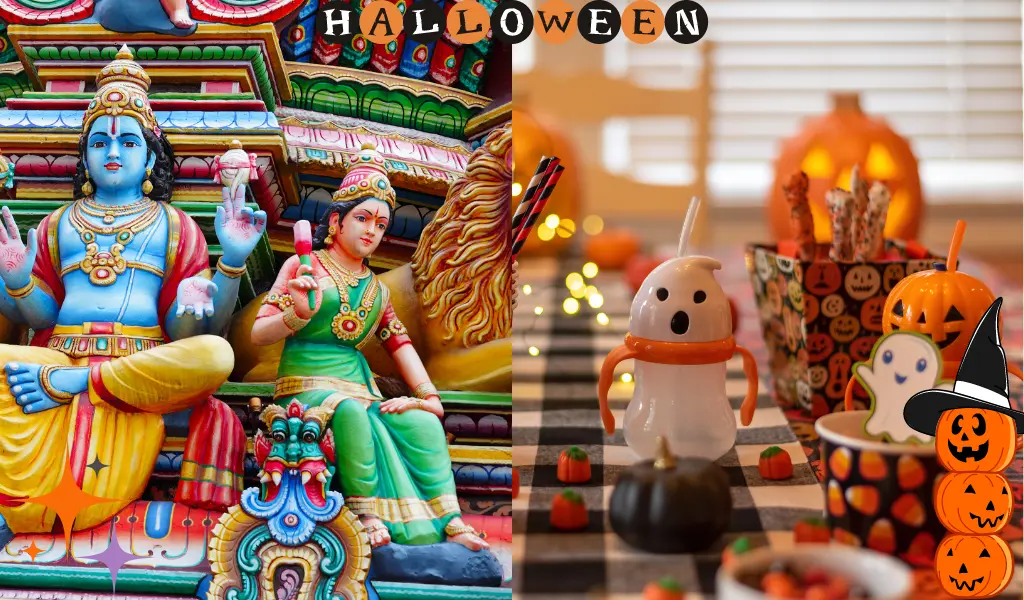
1. Orthodox Hinduism
Orthodox Hindus typically do not celebrate Halloween. Hindu festivals are deeply rooted in religious traditions and mythology, and Halloween’s origins and customs are seen as foreign to Hindu practices.
Instead, Orthodox Hindus focus on traditional festivals such as Diwali and Holi, which hold significant religious and cultural importance.
Orthodox Hindus’ celebration of traditional festivals highlights their commitment to preserving their rich cultural and religious heritage.
2. Modern Hindu Practices
Some modern Hindus might be more open to celebrating Halloween in a secular context, particularly in Western countries where Halloween is widely observed.
However, traditional and conservative Hindu practices generally do not include Halloween as part of their religious or cultural celebrations.
Modern Hindus’ selective engagement with Halloween reflects the adaptability of Hindu practices while maintaining core traditional values.
Reasons for Non-Celebration Halloween
1. Theological Reasons
Many religions do not celebrate Halloween due to its origins and associations with pagan traditions and supernatural elements. Religious doctrines often emphasize adherence to faith-specific celebrations and observances.
Theological considerations ensure that religious practices remain aligned with the core principles and teachings of each faith.
2. Cultural and Historical Context
Cultural and historical factors also play a role in the non-celebration of Halloween. Many religious traditions have developed their own unique festivals and observances that align with their historical and cultural narratives.
Halloween, with its origins in Celtic and later Western secular traditions, is seen as inconsistent with these established practices.
Cultural preservation helps maintain the distinct identity and continuity of religious traditions.
Cultural Sensitivity and Respect
1. Understanding Diverse Practices
Recognizing and respecting the diverse practices and beliefs regarding Halloween is crucial. Each religion’s stance on Halloween reflects its unique theological, cultural, and historical contexts, and understanding these perspectives fosters mutual respect and awareness.
Being aware of these differences helps to avoid misunderstandings and promotes a more inclusive environment where everyone’s beliefs are honored.
2. Promoting Interfaith Dialogue
Encouraging dialogue between different faith communities about Halloween and its observance can promote understanding and tolerance.
Engaging in open conversations about religious practices and holidays helps bridge gaps and build stronger, more respectful relationships between diverse groups.
This dialogue also facilitates greater empathy and cooperation, leading to more harmonious interactions in multicultural settings.
Conclusion
Halloween is a widely celebrated holiday, but it is not embraced by all religions.
Various faiths, including Orthodox Christianity, Islam, Judaism, and certain denominations within Christianity, either discourage or do not observe Halloween due to theological, cultural, and historical grounds.
Understanding which religion doesn’t celebrate Halloween and the reasons behind it highlights the rich diversity of religious practices.
Respecting these differences fosters a more inclusive and tolerant society where every belief is valued.
FAQs
Several religions do not celebrate Halloween, including Orthodox Christianity, Islam (both Sunni and Shia), Orthodox Judaism, and certain conservative Christian denominations such as some Baptist and Methodist groups. These faiths often avoid Halloween due to its pagan origins and associations with supernatural elements.
Some Christian denominations, particularly conservative ones, avoid celebrating Halloween because they believe it has pagan roots and is associated with practices that conflict with their religious teachings. Instead, they may focus on religious observances or alternative events like harvest festivals.
Yes, most Muslims refrain from celebrating Halloween. Both Sunni and Shia Muslims generally avoid the holiday because it does not align with Islamic principles and is seen as a non-Islamic, secular celebration.
Yes, many religious groups offer alternatives to Halloween that align more closely with their beliefs. For example, some Christian communities host harvest festivals or “Hallelujah Nights,” focusing on community, fellowship, and religious education rather than Halloween’s secular and supernatural themes.
Related Post
- Which Countries Celebrate Halloween?
- Halloween Celebrations in Tennessee
- Halloween Celebrations in Iowa
- Halloween Celebrations in Delaware
- Halloween Celebration in Bolivia


